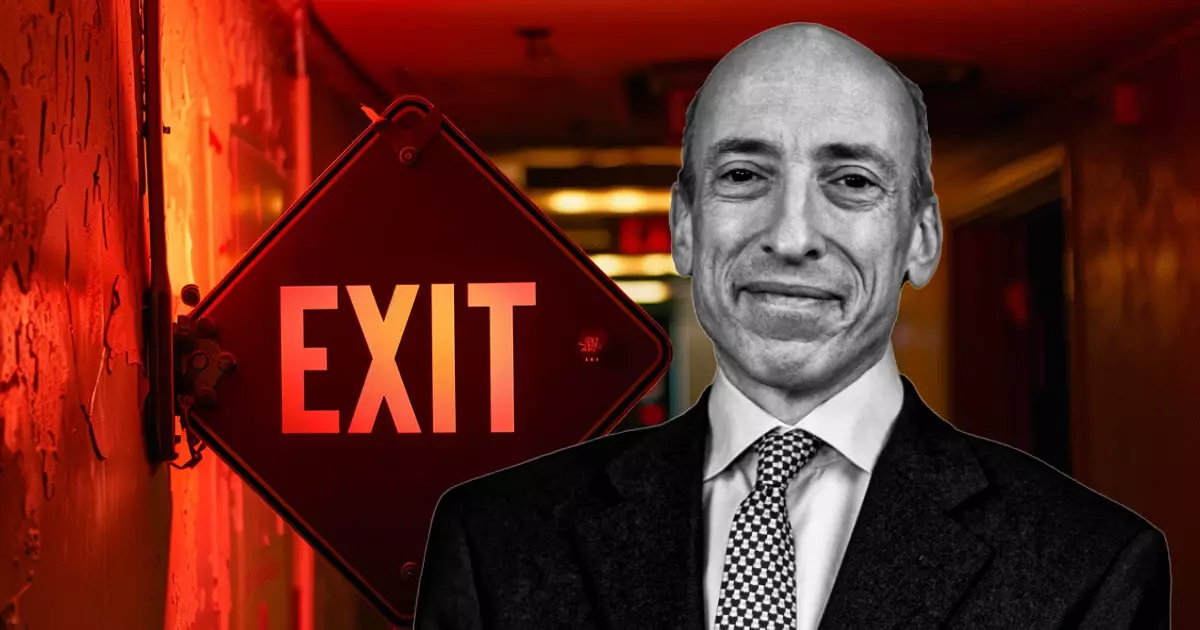Gary Gensler’s impending departure from the role of Chairman of the US Securities and Exchange Commission (SEC) on January 20, 2025, coincides with a significant political transition in the country, namely the inauguration of President-elect Donald Trump. Gensler, who has held the position since April 2021, reflects positively on his tenure, noting it as an “honor” to lead an agency he describes as “remarkable.” His claim about the SEC being mission-driven illuminates a commitment to investor protection and facilitating capital formation, but it also hints at the complexities faced in achieving these goals amid a rapidly evolving financial landscape, especially regarding cryptocurrencies.
During his time at the SEC, Gensler has taken a hard stance on the crypto industry, which has drawn both support and criticism. He led enforcement actions against several notable trading platforms, including cryptocurrency giants like Binance and Coinbase, accusing them of functioning as unregistered securities brokers. This rigorous regulatory approach underscores Gensler’s determination to maintain market integrity; however, it has also sparked significant debate about regulators’ role in fostering innovation versus enforcing compliance.
Interestingly, news of Gensler’s resignation has spurred positive momentum in the cryptocurrency market, with XRP among the biggest beneficiaries, seeing an approximate 4% increase in value within a mere 24 hours. This response raises questions about how leadership changes at regulatory bodies influence market sentiment—often illustrating how closely intertwined the regulatory environment and market dynamics are. Gensler’s mixed legacy in overseeing cryptocurrency regulation will likely be a point of discussion as stakeholders prepare for a new regulatory landscape.
Additionally, during Gensler’s leadership, the SEC achieved major milestones, including the approval of spot Bitcoin and Ethereum exchange-traded funds (ETFs). His initial opposition to these products, rooted in concerns over potential market manipulation, was challenged when a US Court of Appeals ruled in favor of Grayscale, effectively mandating the SEC to reconsider its stance. This prevailing narrative underlines the court’s critique of regulatory overreach and raises pressing questions about accountability in regulatory frameworks.
As Gensler prepares to exit, the SEC finds itself at a pivotal juncture, with leadership poised to shift dramatically. President-elect Trump has yet to announce a successor, which leaves the commission evenly divided between political party lines. The speculation surrounding potential candidates for Gensler’s role reflects a broader concern regarding the future direction of SEC policies. Notable figures from the industry, such as Brian Brooks and Dan Gallagher, alongside current Commissioner Hester Peirce, are at the forefront of discussions. Each of these candidates brings a unique perspective to the complexities faced by the SEC, particularly in relation to cryptocurrency regulation and market oversight.
The SEC’s transition period will not only shape the future of regulation but also impact investor confidence and market stability. A new chairman could either continue Gensler’s stringent approach to crypto regulation or pivot towards a more accommodating stance that prioritizes innovation alongside investor protection. As stakeholders, investors, and market participants await further developments, the importance of thoughtful regulatory leadership remains clear in sustaining healthy financial markets for all constituents.

